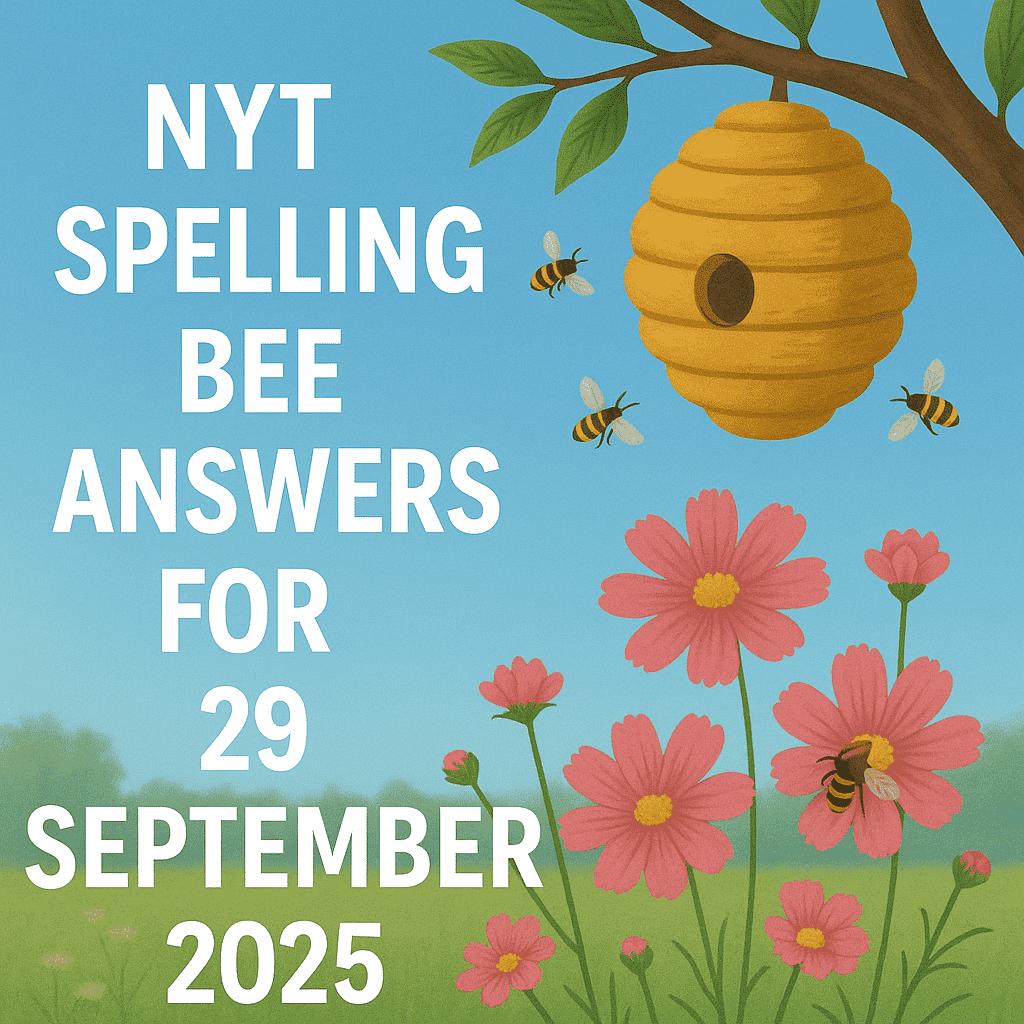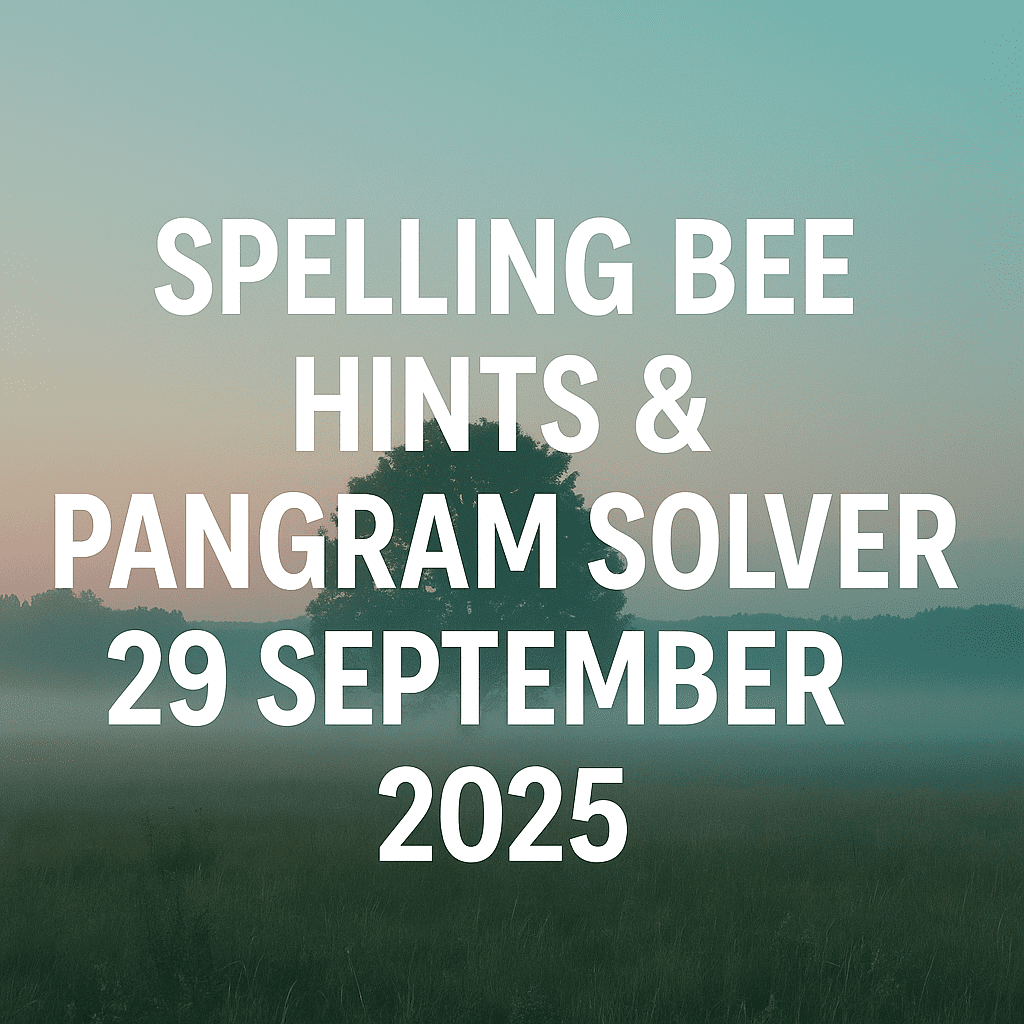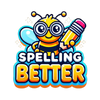Pangram: OCCUPANT
Today’s NYT Spelling Bee was all about patience and observation. With P in the center and surrounding letters O, C, U, A, N, and T, the hive seemed deceptively simple — a neat set of rounded sounds that didn’t give away much at first glance. Yet, buried in this calm-looking cluster was a word brimming with life: OCCUPANT — the perfect pangram for today’s puzzle.
How I Solved It
When I first looked at the hive, I noticed two things immediately: the double C and the inclusion of both A and O, which meant there was good potential for strong syllable combinations. I started by forming simple roots around the central P, experimenting with clusters like cap, pan, and nap.
I began jotting down shorter words: nap, cap, top, ton, tap, and pact. Then I moved to four-letter words that sounded natural: pont, punt, canto, coat. The puzzle still felt open-ended — none of these felt close to a pangram yet.
The “aha!” moment came when I spotted OCCUPY as a possibility. That double C practically begged to be used twice, and the “UP” sound aligned perfectly. From there, I played with extensions: occupy, occupant, occupation. And just like that, OCCUPANT appeared — using all seven letters with a satisfying balance of structure and sound.
It felt like discovering the key to a locked door: simple, obvious, and brilliant once you saw it.
-
Identify strong letter pairs: The hive’s “C–P” and “O–A” combinations are extremely versatile.
-
Try common prefixes: The prefix “OCCU–” stands out right away once you see the double consonant.
-
Build outward: Once occupy is found, it’s only natural to explore occupant, occupation, and occupancy.
-
Eliminate dead ends: Words like capon or paton can mislead you — focus on those that keep the “P” alive at the center.
This puzzle rewards methodical solvers — those who look for patterns rather than random guesses.

Pangram of the Day
OCCUPANT
A word that fits the hive perfectly — grounded, symmetrical, and meaningful. It describes “one who resides or holds possession of a place,” but in a broader sense, it reminds us that every Spelling Bee player is an “occupant” of their own mental space, navigating language and creativity.
All Possible Words (4+ Letters)
4-Letter Words:
- pant
- punt
- pact
- capo
- coop
- coup
- papa
- pout
- pupa
- putt
- tapa
- atop
- tapa
- upon
5-Letter Words:
- panco
- panto
- caput
- puton
- capon
- coopt
- cuppa
- cutup
- poppa
- unapt
- uncap
6-Letter Words:
- potman
- coupon
- occupy
- catnap
- copout
- output
- potato
- putout
7+ letter words:
- occupant (Pangram)
- pontoon
- topcoat
It’s a rewarding hive — each smaller word feels like a building block leading toward the final structure.

Word Insight: The Meaning of “Occupant”
The word occupant comes from the Latin occupare, meaning “to seize or take possession.” Historically, it referred to someone claiming land or space — but today, it’s a more neutral term for anyone living or present somewhere.
That layered meaning mirrors the puzzle itself: at first, you occupy the hive tentatively, exploring possible routes. Gradually, you inhabit it — uncovering more words until you feel at home.
Did You Spot the Pangram?
Today’s Spelling Bee was a perfect mix of structure and simplicity. The pangram OCCUPANT wasn’t flashy — it was quietly brilliant, hidden in plain sight. The repetition of the Cs created rhythm, the A and O balanced the vowels, and the P anchored everything in the middle.
This puzzle reminded me that the most satisfying solutions aren’t always the fanciest — they’re the ones that fit perfectly. Just like an occupant fills a home, today’s pangram filled the hive seamlessly.
If you cracked it, well done — you truly took occupancy of today’s word space. And if you’re still learning, keep buzzing! Every puzzle you solve builds a little more linguistic intuition, making tomorrow’s pangram that much easier.
Keep exploring, keep solving, and keep occupying your space as a word genius — one puzzle at a time.






